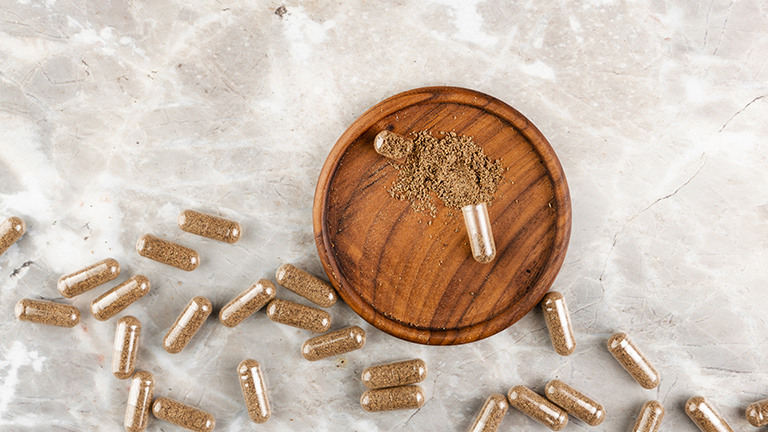5 Supplements for Bone Health: Bone health is a vital component of overall well-being, often overlooked until problems arise. Healthy bones provide structural support, protect vital organs, anchor muscles, and store essential minerals. As we age, bone density naturally decreases, making individuals more susceptible to fractures, osteoporosis, and chronic pain. Factors such as genetics, hormonal changes, diet, and lifestyle choices influence bone health.
In countries like the USA, UK, and Canada, osteoporosis affects millions of adults, particularly women post-menopause. Weak bones increase the risk of fractures, which can significantly affect mobility and quality of life. Ensuring optimal bone health is not only about preventing osteoporosis but also about maintaining mobility, strength, and independence as we age.
Nutrition plays a crucial role in maintaining strong bones. While a well-balanced diet rich in minerals and vitamins is essential, many people may not get sufficient nutrients from food alone. This is where bone health supplements become critical. By supporting calcium absorption, bone density, and collagen formation, supplements help fortify bones and reduce the risk of injury.
[INSERT_ELEMENTOR id=”5108″]
Top 5 Supplements for Bone Health
Maintaining strong bones requires a combination of essential nutrients. While diet contributes significantly, supplements can provide targeted support, especially for individuals with deficiencies or higher needs. Here are the top five supplements scientifically proven to enhance bone strength and prevent osteoporosis.
Calcium – The Foundation of Strong Bones
Calcium is the most abundant mineral in the human body, primarily stored in bones and teeth. It is the cornerstone of bone health, providing structural strength and density. Adequate calcium intake is essential for developing strong bones during childhood and adolescence, maintaining bone mass during adulthood, and preventing bone loss in older adults.
Calcium deficiency can lead to weakened bones, increased fracture risk, and conditions like osteoporosis. Adults typically require 1,000–1,200 mg of calcium per day, which can be obtained through dairy products, leafy greens, fortified foods, and supplements.
Calcium supplements are available in various forms, including calcium carbonate and calcium citrate. Calcium carbonate is best taken with meals, while calcium citrate is more easily absorbed and can be taken on an empty stomach. Combining calcium with vitamin D enhances absorption, maximising the benefits for bone strength.
Vitamin D – Enhancing Calcium Absorption
Vitamin D is a fat-soluble vitamin crucial for calcium absorption and bone mineralisation. Without sufficient vitamin D, calcium from the diet or supplements cannot be effectively utilised, leading to weak bones and increased fracture risk. Vitamin D also plays a role in muscle function, which indirectly supports bone health by reducing the likelihood of falls.
Sunlight exposure is the primary source of vitamin D, but many people do not receive enough sunlight, especially in regions with long winters or limited outdoor activity. Dietary sources include fatty fish, fortified dairy products, and egg yolks. However, supplements are often necessary to maintain optimal levels.
Recommended vitamin D intake varies by age and health status, with adults generally requiring 600–800 IU daily. Some individuals, especially older adults or those with low sun exposure, may benefit from higher doses under medical supervision.
Magnesium – Supporting Bone Structure
Magnesium is an essential mineral involved in over 300 biochemical reactions, including those related to bone formation. Approximately 60% of the body’s magnesium is stored in bones, highlighting its importance in maintaining bone density and structural integrity.
Magnesium supports the conversion of vitamin D into its active form, which in turn enhances calcium absorption. Additionally, magnesium influences the activity of osteoblasts and osteoclasts, the cells responsible for building and breaking down bone tissue.
Low magnesium intake is linked to decreased bone density and increased fracture risk. Sources of magnesium include nuts, seeds, whole grains, legumes, and leafy green vegetables. For individuals who struggle to meet daily requirements, magnesium supplements can be highly beneficial for bone health.
Vitamin K2 – Directing Calcium to Bones
Vitamin K2 plays a crucial role in bone metabolism by activating proteins that regulate calcium deposition. Specifically, it activates osteocalcin, a protein that helps bind calcium to the bone matrix, ensuring it strengthens bones rather than accumulating in arteries.
Studies suggest that vitamin K2 supplementation can improve bone mineral density and reduce fracture risk, especially in postmenopausal women. While vitamin K1 is found in leafy greens and plays a role in blood clotting, vitamin K2 is found in fermented foods such as natto and certain cheeses. Supplements provide a reliable source for individuals who may not consume these foods regularly.
Collagen – Building Blocks for Bone Strength
Collagen is the primary structural protein in bones, providing flexibility and strength. As we age, collagen production declines, contributing to brittle bones and increased fracture risk. Collagen supplements, often derived from bovine or marine sources, can support bone health by providing the amino acids necessary for bone matrix formation.
Research indicates that collagen supplementation can increase bone mineral density and improve overall bone strength when combined with calcium and vitamin D. Collagen peptides are widely available in powder or capsule form and can be easily incorporated into daily routines.
5 Supplements for Bone Health
| Supplement | Key Benefits | Recommended Dosage | Reference Link |
|---|---|---|---|
| Calcium | Builds and maintains bone density, prevents fractures | 1,000–1,200 mg/day | NIH – Calcium |
| Vitamin D | Enhances calcium absorption, supports muscle function | 600–800 IU/day (may vary based on age & sun exposure) | NIH – Vitamin D |
| Magnesium | Supports bone structure, aids in vitamin D activation | 310–420 mg/day | NIH – Magnesium |
| Vitamin K2 | Directs calcium to bones, improves bone mineral density | 90–120 mcg/day | PubMed – Vitamin K2 & Bones |
| Collagen | Provides amino acids for bone matrix, improves bone strength | 5–10 g/day | PubMed – Collagen & Bone Health |
How to Choose the Right Bone Health Supplements
Selecting the most effective supplements requires consideration of individual needs, dietary intake, and medical conditions. Age, gender, and lifestyle factors play a significant role in determining which supplements are most beneficial.
For women, especially postmenopausal, calcium, vitamin D, and vitamin K2 are often prioritized due to increased osteoporosis risk. Men over 50 may also benefit from these nutrients, along with magnesium and collagen, to maintain bone density and prevent fractures.
When choosing supplements, it is crucial to check dosage recommendations, absorption rates, and potential interactions with medications. For instance, high doses of calcium may interfere with magnesium or iron absorption, while vitamin K2 can affect blood-thinning medications. Consulting a healthcare professional ensures safe and effective supplementation.
Foods That Complement Bone Health Supplements
While supplements provide concentrated nutrients, a balanced diet enhances bone health naturally. Foods rich in calcium include dairy products, fortified plant-based milk, almonds, and leafy greens. Magnesium-rich foods like spinach, pumpkin seeds, and black beans further support bone density.
Vitamin D can be obtained from fatty fish, fortified dairy, and egg yolks, while vitamin K2 is present in fermented foods and cheeses. Collagen is abundant in bone broth, fish skin, and gelatin-based foods. Combining supplements with a nutrient-dense diet maximises bone strength and overall health.
Lifestyle Tips for Stronger Bones
Exercise plays a pivotal role in maintaining bone health. Weight-bearing activities such as walking, jogging, and resistance training stimulate bone formation and slow bone loss. Strength training exercises improve muscle mass, which provides additional support to the skeletal system and reduces fracture risk.
Lifestyle habits also affect bone health. Smoking and excessive alcohol consumption weaken bones, while maintaining a healthy weight and managing stress contribute to bone strength. Adequate sleep supports hormone regulation, which is essential for bone remodeling and repair.
Expert Opinion on Supplements for Bone Health
Dr. Michael Holick, Professor of Medicine at Boston University and a leading researcher on vitamin D, explains:
“Vitamin D is critical for calcium absorption. Without adequate vitamin D, even high calcium intake will not support bone health effectively. For adults in northern climates such as the USA, UK, and Canada, supplementation is often necessary, especially in winter months.”
Dr. Susan Lanham-New, Head of Nutritional Sciences at the University of Surrey, UK, highlights the importance of a multi-nutrient approach:
“Calcium alone is not enough. Bone health depends on a synergy between calcium, vitamin D, magnesium, and vitamin K2. These nutrients work together to enhance bone mineral density and reduce fracture risk.”
According to Dr. Robert Heaney, an internationally recognized bone health expert:
“Collagen supplements are gaining recognition in the scientific community for their role in providing the structural framework of bones. Combined with calcium and vitamin D, collagen peptides may help slow age-related bone loss.”
These expert insights reinforce that bone health supplements are most effective when combined with a nutrient-rich diet, regular exercise, and proper lifestyle choices.
FAQ (5 Supplements for Bone Health)
Can supplements replace a healthy diet?
Supplements complement but cannot replace a balanced diet. Whole foods provide additional nutrients and bioactive compounds essential for overall health.
Are there side effects of taking bone supplements?
Excessive intake of calcium or vitamin D can cause kidney stones or hypercalcemia. Magnesium may cause digestive upset in high doses. Consulting a healthcare professional is recommended.
How long before I see results?
Bone health improvements are gradual. Noticeable benefits may appear after several months of consistent supplementation, combined with diet and exercise.
Conclusion (5 Supplements for Bone Health)
Maintaining strong bones requires a multifaceted approach, combining diet, supplements, and lifestyle choices. The five key supplements—calcium, vitamin D, magnesium, vitamin K2, and collagen—provide essential support for bone density, strength, and fracture prevention.
By carefully selecting high-quality supplements, consuming nutrient-rich foods, and engaging in regular weight-bearing exercise, individuals can significantly enhance bone health, reduce the risk of osteoporosis, and maintain mobility and quality of life well into older age.
Strong bones are not just a matter of youth; they are a lifelong investment in independence, vitality, and overall health.



